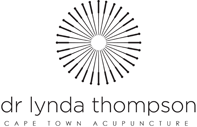What is acupuncture?
The overall aim of acupuncture treatment is to help restore the body’s equilibrium and trigger the natural healing process.
Although acupuncture in South Africa, has only been governed since 2002 by the Allied Health Professions Council of South Africa, traditional acupuncture is a healthcare system based on ancient Chinese principles, which date back thousands of years.
It looks at illness and pain as signs that the body’s equilibrium is out of balance.
There can be many reasons for this more commonly; emotional and physical stress, poor diet, infection and injury.
The doctor uses subtle diagnostic techniques that have been developed and refined for centuries.
The focus is on the individual patient, not their illness, and all the symptoms are seen in relation to each other.
There is increasing evidence from Western scientific research demonstrating the effectiveness of acupuncture in treating a variety of conditions.
The World Health Organisation (WHO) has endorsed acupuncture in the successful treatment of over 300 different diseases (WHO (2003) Acupuncture: Review and Analysis of Reports on Controlled Clinical Trials) and the National Institute for Health and Care Excellence in the United Kingdom (NICE) provides guidelines for acupuncture use as well as providing access to studies on acupuncture.
How does it work?
Doctors of Chinese medicine and acupuncture believe that the body’s energy they call “qi” flows in channels.
When there is imbalance in the body’s energy this causes illness and pain.
By inserting ultra-fine sterile needles into specific points, the doctor seeks to re-establish the energy flow and restore balance and trigger the body’s natural healing process.
Much research has been done to understand how acupuncture works in conventional medicine for example Zhang et al. (2014) Mechanisms of Acupuncture – Electroacupuncture on Persistent Pain. Anesthesiology 120 (2): 482 – 503.
What should I wear for my appointment?
The most commonly used acupuncture points are located on the lower arms and legs, so we advise you to wear clothing that allows easy access to these areas. Privacy will be provided if there is a need for further access.
What happens at an appointment?
During your first visit to the rooms the doctor needs to gain a thorough understanding of your main complaint and your general health and lifestyle.
You will be asked questions about your current symptoms and your medical history, as well as general questions such as your sleeping pattern, appetite and digestion and emotional well being.
Women are also asked about their menstrual cycle and any past pregnancies.
Some questions may appear unrelated to your condition, but the information provides a more complete picture of your health.
The doctor will also take your pulse and examine your tongue and examine areas of discomfort.
Based on all this information, the doctor will make a diagnosis and formulate a treatment plan.
This may include lifestyle and dietary advice, herbs as well as acupuncture.
The doctor will use ultra-fine sterile needles to stimulate specific points on your body.
These points are not necessarily close to where you experience pain or discomfort. For example, if you suffer from headaches, needles may be used in your hand.
Are there any side effects of acupuncture?
Most people find acupuncture relaxing and often feel calm after a treatment.
You may feel a little tired or sleepy, so should take this into account if you are planning to drive or use heavy machinery straight after your treatment. The doctor will give you information on this prior to your treatment.

